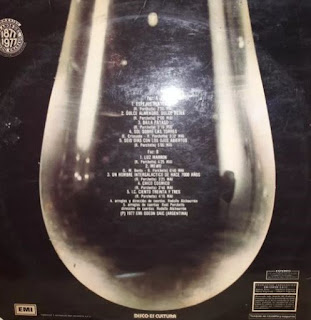I can't believe how lazy those KPM covers were. They didn't even change the colors the way international postage stamps did in my stamp collection I treasured so much as a child, which my mom kept and threw away a few years ago to my utter and total chagrin. Or maybe it's still sitting in our basement somewhere next to all our kids' rock collections, which I expect to toss out too. Who cares, anyways. We don't use stamps anymore, right, now that we have amazon, youtube, tiktok, snapchat, whatsapp and instagram???? Hey--what's a stamp? You actually had to lick those things? Yeah, you millenials know all about licking. OK boomer. Yes, let's not go there, take it to twitter, if you want WWII-like raging arguments.
Some of these have the great Alan Hawkshaw, my favourite library composer, included. On the other hand, I had never heard of Brian Bennett until looking through the Hawkshaw discography for stuff I missed I came across his name. And unbelievably, there are still libraries by Hawkshaw that haven't been 'digitized' yet for us all.
From discogs:
Born 1940 in London. Percussionist since the 1950s. Joined Cliff Richard & The Shadows in 1961.
Since the mid 1970s arranger, conductor and record producer, composer for film and TV.
In this instance, definitely the LPDP applies, after 1978-1979 in which he made quite a great deal of nice funky energetic music alternating with lovely gentle symphonic music along the lines of the great John Fiddy, the slow decline begins.
Nonetheless I think we can all agree that in the immortal 1974 track called Nuplex there is just about everything we can and do love about the great library music of the 1970s, the funky beat, the synths, the horn section, the lovely rhodes piano curlicues, the very tasteful string section touches:
I love how all the instruments meld together so absolutely perfectly.
On the wonderful 1978 Bruton album
Drama Montage the track
Fast and Furious is just that:
And that album has numerous delights in it.
In the same year,
Tone Poems has a delicatesse that recalls all the best of
A.R. Luciani's work (did I ever post a lot of his stuff in the past). Unfortunately the guy who ripped it, and I won't swear here, did it in mono. I might just buy the vinyl and redo the rip, bring you back a lossless, because I think it deserves better. Consider the
Migration track, demonstrating his quasi-miraculous ease with classical composition:
That track alone later appears on a different library album.
Special mention for
this album, called Voyage into Discoid Funk (1978). which was his attempt at crafting a fusion concept album along the lines of
Lenny White's Venusian Summer which in fact is quite similar. A number of high energy standard fusion tracks in there, overall really a solid album that came as quite a surprise to me (because I never heard it before, despite it being right up my alley).
In this package there are a couple of albums he made in conjunction with the great Alan Hawkshaw.
I didn't check too closely who wrote which songs, but there's one thing I can say for certain: the closer for
1974's KPM Synthesis, which is called Mermaid, is 100 percent from Hawkshaw, and you will agree too when you hear that unmistakable synthesizer:


























































